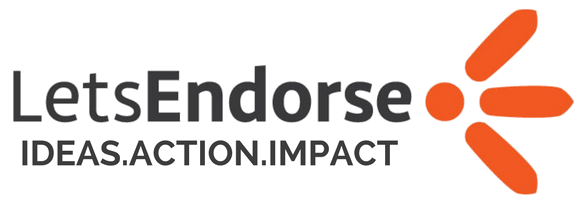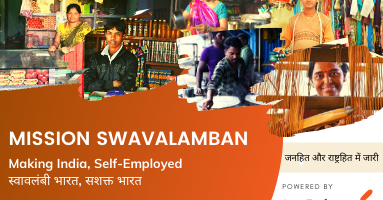
Over the past year, we, at LetsEndorse, have been implementing our intervention model Project Udyamita in collaboration with SIDBI (Small Industries Development Bank Of India) under the umbrella of Mission Swavalamban. The project is active in 108 districts of 5 states of India (UP, Bihar, Jharkhand, Odisha and Telangana).
Amid slowdown in creation of new jobs, the micro-entrepreneurship model provides a blueprint for enabling self-sufficiency in vulnerable communities at the base of the pyramid. Creation of micro-enterprises will not only provide a means to better standards of living for lakhs of underemployed, unemployed and COVID affected reverse migrants (people migrating from cities to villages/towns) but also avert global economic shocks. The Indian Government has been propelling the growth of MSMEs to impart resilience to the Indian economy.
In the current landscape, there exist several gaps which need to be filled to make nano/micro-entrepreneurship a viable option for low-income households (LIHs) where the average household (of 5 members) earns less than INR 3 lacs per annum. To start with, there is a cultural problem as entrepreneurship is not seen as an aspiration in India. Lack of risk-appetite, entrepreneurial rigour and skills, working knowledge of credit enablement schemes, marketing trends and latest technology are some of the barriers that stand in the way of mass entrepreneurship.
What does it take to transform people into micro-entrepreneurs?
The Government’s efforts to enable MSMEs consist of several state-sponsored schemes like PM Mudra Yojana, NHDFC loans, SVANIDHI Scheme, PMEGP, CMEGP and several others aiming to nurture entrepreneurship. Public Sector Banks, too, have a set target to disburse a minimum number (and sum of) loans towards MSME enablement. Organisations like SIDBI, KVIC, etc have been deputed to meet the goals. Any attempt to transform vulnerable groups into micro-entrepreneurs must involve providing access to microcredit but the importance of training, guidance, and mentorship cannot be overlooked.
In need of a 360° enabler
A person who is enthusiastic about starting a business may not know how to select the right business idea in accordance with their persona and the market. They may not know how to scan the competition, identify the right suppliers and location for their business. If they are looking to avail credit, they will need to figure out how to create a business plan, identify fitting credit schemes and apply for them. The 60000+ calls that we have received on our toll-free number during COVID-19 have established that there is a need for 360-degree end-to-end handholding and enablement across these areas.
Banks also struggle to meet their targets of lending to micro-businesses (while keeping NPAs under check). Our unique maturation model positions us as ecosystem builders who strengthen micro-businesses such that they can be suitable candidates for micro-enterprise loans.
Synergies that make it possible
We have always believed in and advocated for a collaborative approach that brings multiple stakeholders together in solving complex problems. SIDBI, the apex Government institution for micro-enterprise promotion and finance, is our key collaborator in this project. We are also supported by a network of NGOs, local government administrations, skill training institutions and banks who are critical to our ability to promote entrepreneurship at the local level. The bedrock for us has always been to create the necessary and missing CONVERGENCE.
A toll-free number is promoted in all our outreach efforts so that any aspirant or potential entrepreneur can call us and receive support. The first step on the candidates end is as simple as a missed call. Our tech and touch model ensures that all candidates are taken through profiling, priority scoring and due diligence stages to evaluate their seriousness and suitability. The fitting aspirants are taken to the next stages of business planning, credit linkage and setting up of enterprises.
The road ahead
The MSME sector is known as the growth accelerator of the Indian economy and it shall pave the way for economic recovery and growth. The recent economic events have underscored the importance of boosting hyperlocal livelihood creation and self sufficiency. It is time we recognise the challenges faced by MSMEs and foster an ecosystem where growth of micro-enterprises can be accelerated. Project Udyamita is on a path to create 10,000 MSMEs in 108 districts of UP, Bihar, Jharkhand, Odisha and Telangana through a model designed for scale. The creation of 10,000 enterprises is just a start as there is a need for millions of enterprises to come up. A movement towards mass entrepreneurship has been kindled in the country and we are positioned to accelerate it to unleash economic growth.
This is the first article in a series that covers various facets of our intervention model to accelerate nano/micro-entrepreneurship. Stay tuned for part two of this series, where we talk about our 360 degree model that provides support at every stage in the maturation journey .

